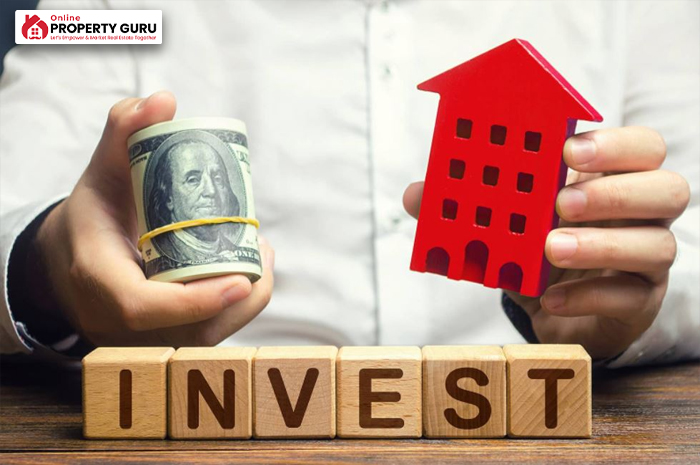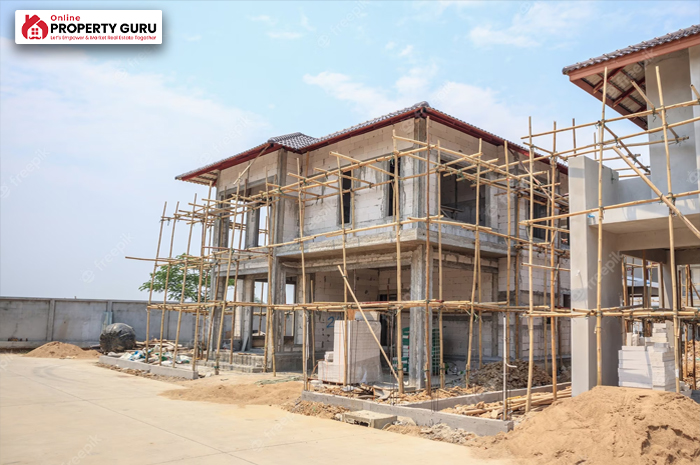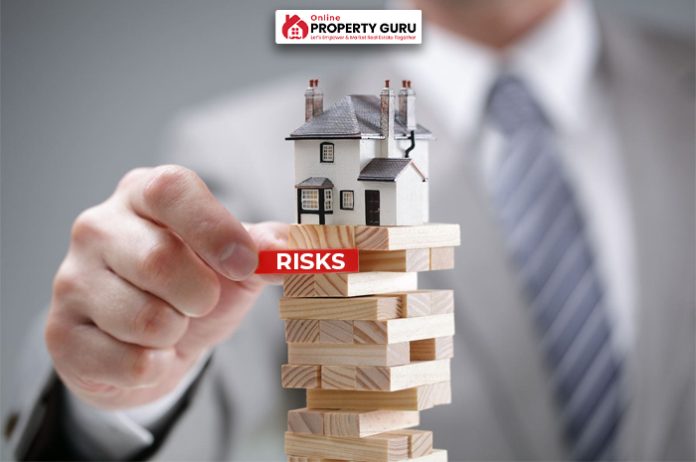Real estate contributes significantly to the global economy. Commercial and residential real estate has been on the increase as a result of the world’s fast population expansion. This has offered chances for investors to pool their funds and safeguard their investments.
Real estate investment, on the other hand, is a complicated and risky procedure. The real estate market is volatile, and there are several possible risks. Government regulations are always changing, as are market developments. As a result, before to making an investment, a thorough grasp of the market is essential.
It is critical for all investors to take steps to mitigate risk in real estate investments. A thorough awareness of numerous market aspects and trends is required for this.
Based on its real estate market expertise, Online Property Guru has created a guide on decreasing risk in real estate investment.

Benefits of Real Estate Investment
Before delving into the hazards of real estate investment, it is vital to first address the benefits. There are many advantages of real estate investment. For starters, it is the most effective approach to limit the danger of assets losing their value. Second, a rental property generates consistent financial flow. The following are some more benefits of real estate investment:
- Increases the return on investment (ROI)
- Long-term asset protection
- Long-term wealth creation
- Deductions and tax breaks
- Source of passive income
- Mortgage payments are covered
- Possibility of leveraging money
- Inflationary protection
- Self-occupations
Risks Involved in Real Estate Investment
Most investors are uninformed about the hazards associated with real estate investment and hence are unable to devise a strategy.
The following are some of the most significant real estate investment risks.
- The market is unpredictable
- Cash flow losses
- High operating expenses
- Real estate investment takes time to return profit
Some Major Factors that Affect Real Estate Market
The following are some of the elements that can have an impact on the real estate market:
- Demographics
- Economy
- Employment Opportunities
- Loan and property interest rates
- External investors
- Fiscal budget
- Government policies and legislation
- Role of dealers’ community
These variables influence real estate investment trends and also each particular industry. Consider these considerations and develop an appropriate approach to assist you decrease the risks associated.

Some Tips to Reduce Risk in Real Estate Investment
The following suggestions will help you get the most out of your investment while minimizing risks:
- Learn about the real estate industry and its tendencies
- Choose one real estate domain
- Consider project functional features to reduce real estate risk
- Invest in the right project development stage
Learn about the real estate industry and its latest trends
Understanding the real estate industry is critical, where inflation is rising daily, currency depreciation is prevalent, and investment trends are shifting. There is a greater risk of investing failure if you do not have a thorough understanding of various trends.
Real estate investment may be divided into three categories: purchasing, selling, and renting. Each sort of investing needs a distinct grasp of the market. Break down the market into tiny components and investigate it to understand each one of them. Real estate firms can also advise you on market changes that are currently taking place. Furthermore, they may provide you with solutions for initiatives that have the potential for development.
Choose One Real Estate Domain
More residential developments have been built in response to population expansion. Commercial real estate, on the other hand, is primarily a high-end investment opportunity, with billions invested each year.
Real estate investment can take the form of purchasing, selling, renting, or stock ownership. Each of them has unique market needs, risks, and rewards. Your capital is a major factor in your real estate venture. Following are some suggestions for real estate investment based on your capital.
- If you are a short-term investor with a huge investment budget and are looking to get the most out of your investment as quickly as possible then invest in buying and selling big-size residential plots, commercial plots, or houses. The best time of buying a property is at the end of winter when the market is inclining and the right time to sell a property is in the mid of summer when the market is running.
- If you are a long-term investor with a tight investment budget and are not looking to get out of your investment quickly then buying and selling plots in housing schemes where prices are currently low can be a good option.
- If you are a long-term investor and can afford to buy multiple houses and are looking to invest in real estate then invest in buying grey structure houses and sell them after renovating. Such investment can give you up to 25% profit.

Consider project functional features to reduce real estate risk
Before making an investment, you must first understand the functional qualities of the relevant project. The first major decision is whether to invest in commercial or residential real estate. Investing in a business venture necessitates a significant financial outlay. This investment is frequently associated with higher returns. Commercial areas are growing faster, and the rise of local and worldwide brands increases the value of these commercial plots.
Residential projects, on the other hand, need fewer resources but take a long time to pay off. Investors, on the other hand, are confident in investing in residential constructions because the market is presently fast increasing.
Aside from the nature of the projects, you should check for the following functional characteristics of a property:
- Location, location, location
- Property type and size
- Home amenities
- Nearby facilities
- Taxes and cost of living
- Basic infrastructure
- Connectivity and transit
- Indicators of the local market
Compare your selected house to others on the market with similar attributes. It will help you in making the best investment decision with the least amount of risk.
Pro Tip: If you want to invest in buying a residential property, before buying, visit the market as a seller of a similar property in the same location. You will get the answer.
Invest in the right project development stage
The seven stages of real estate development include:
- Land banking
- Land packing
- Land development
- Building development
- Building operation
- Building renovation
- Site redevelopment
Each stage of project development requires a different level of investment. For example, if you buy a plot file before the land development authority publishes the construction designs, you may be able to get a good deal on the property.
Purchasing a fully constructed commercial or residential property, on the other hand, is a substantial investment. These units can help you repay your initial investment quickly, but the risk is also higher. As a consequence, before investing, you should carefully analyze all factors.



